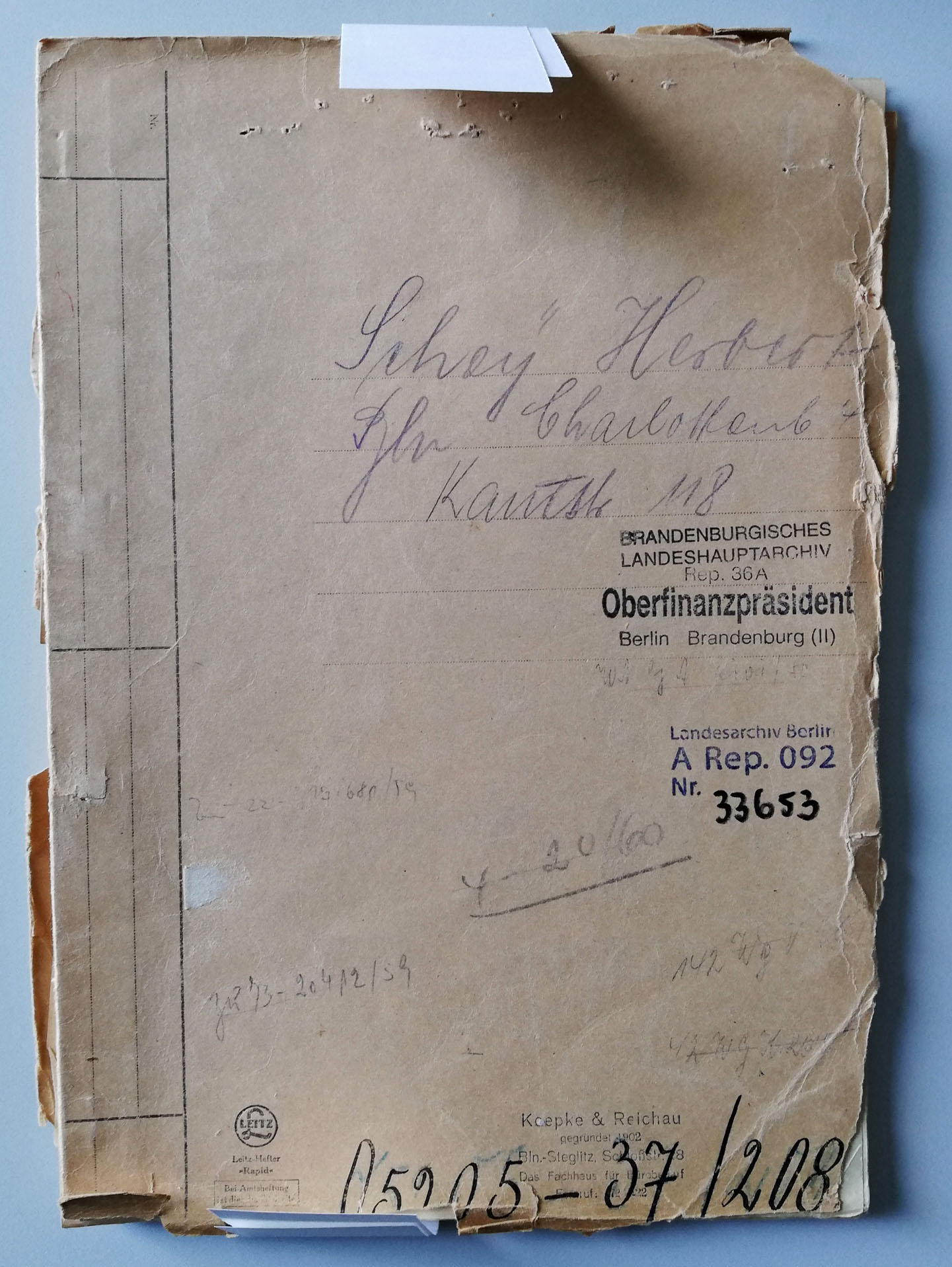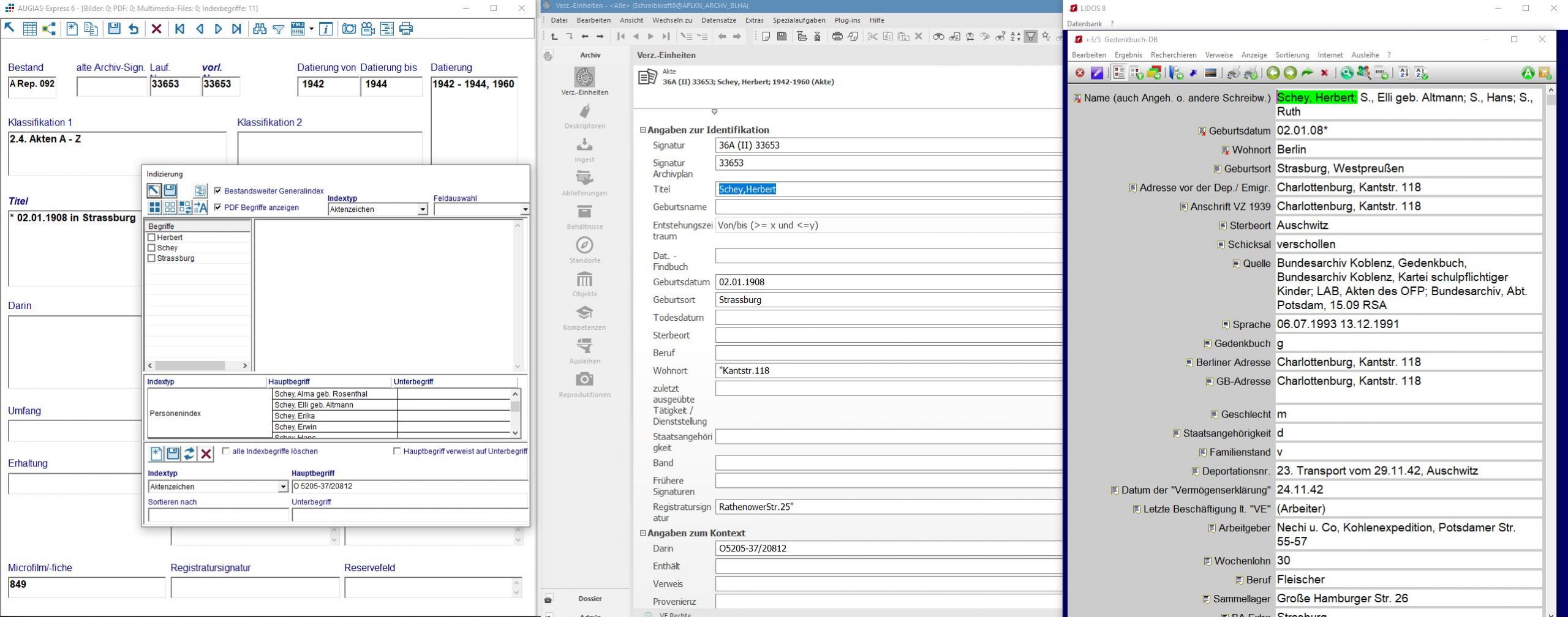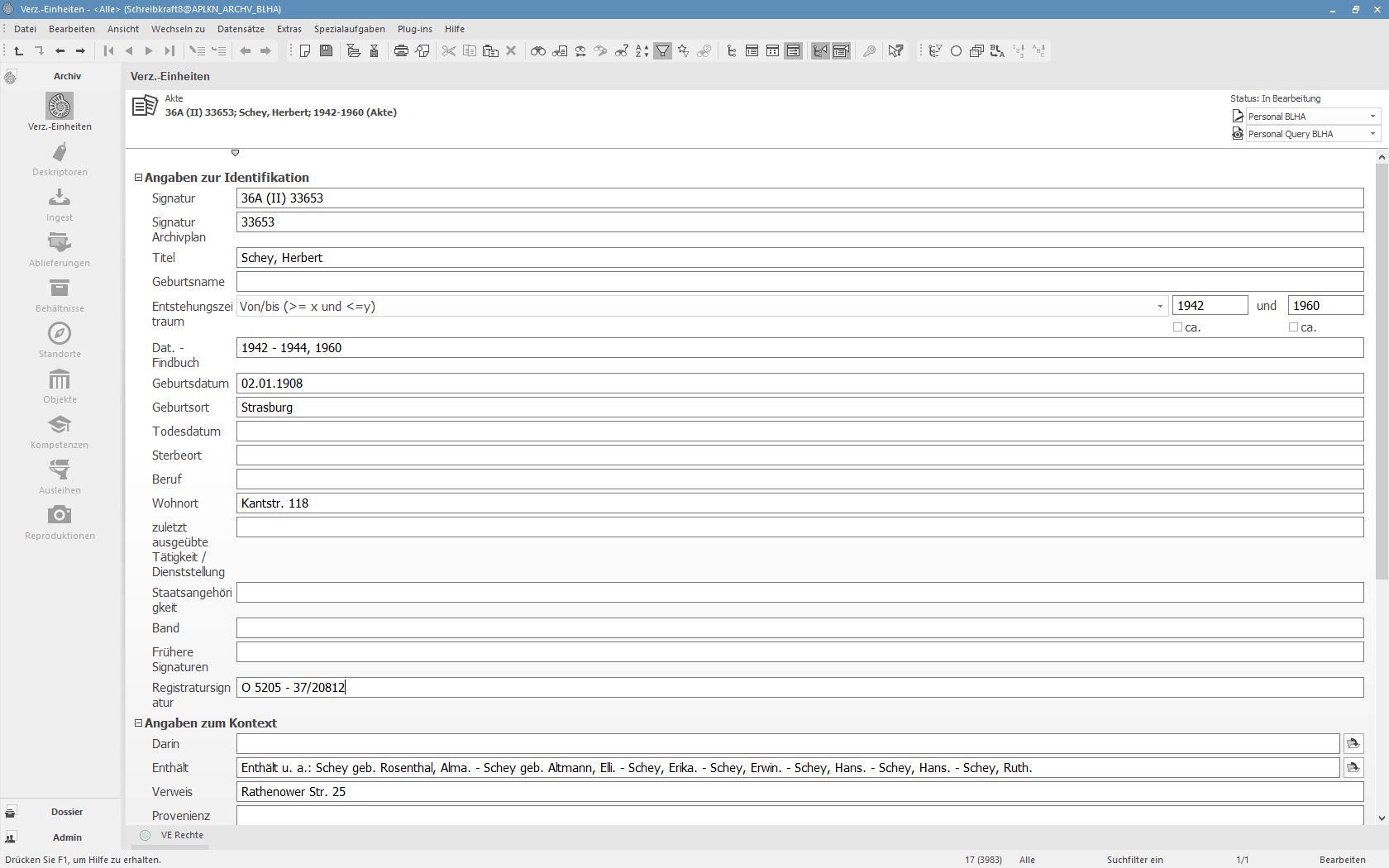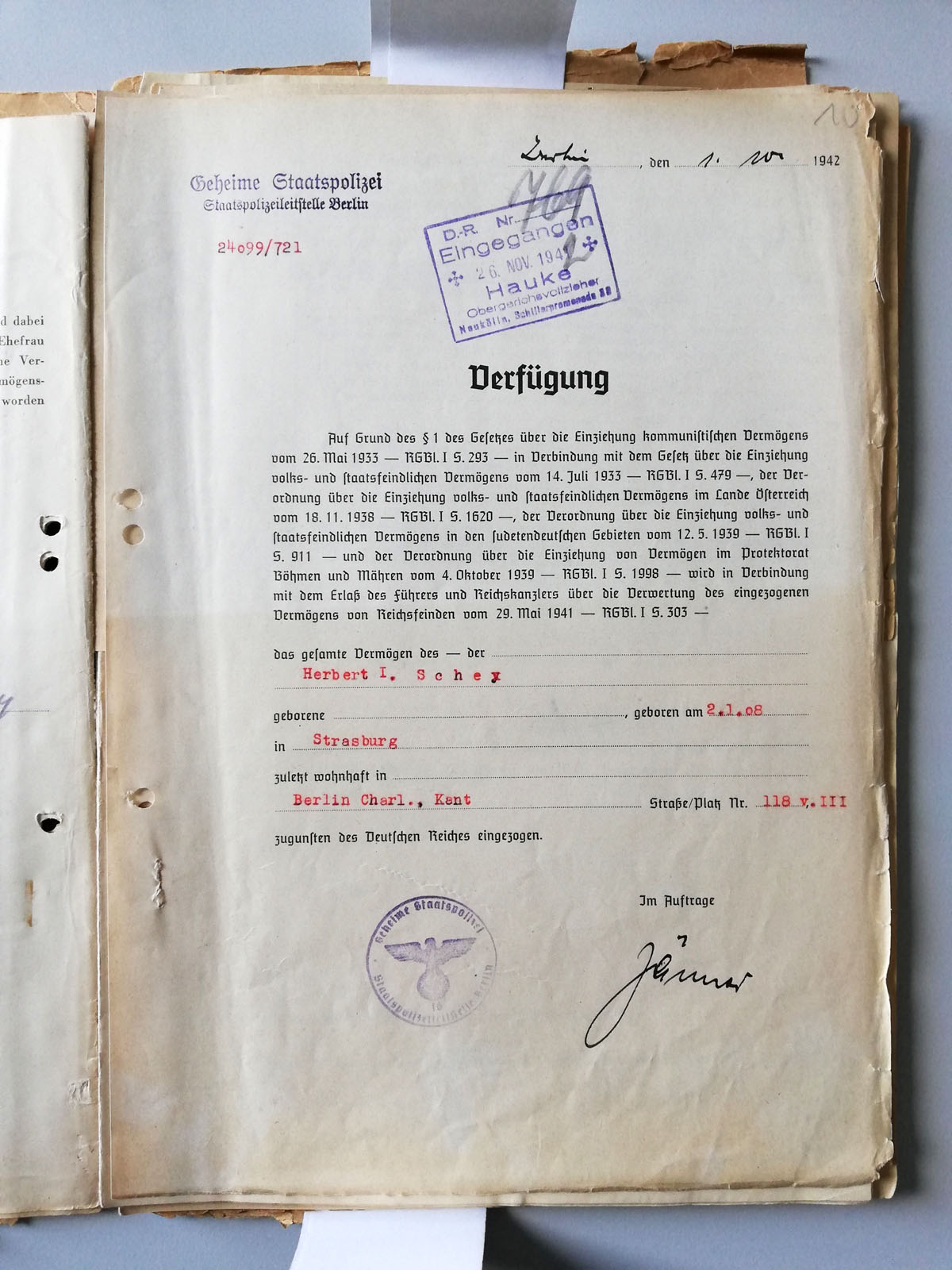Checking and standardising data - the indexing revision
We archivists guard archival treasures - with sleeves and horn-rimmed glasses, we rummage through enormous mountains of paper in dusty basements. So much for the cliché that still persists as an image. The fact that we mainly sit in front of computers and process data records in specialised databases is probably not (yet) part of the widespread image of archival work. However, this is precisely the main task of the archivist in the OFP project.
The primary aim of the archivist in the project is to check, revise and standardise the data records for the 42,000 or so files that were entered in a database many years ago. This is necessary for several reasons:
The files of the Asset Realisation Office were kept in the Berlin State Archives until 2001 and were only then transferred to the State Main Archives in the course of negotiations on the delimitation of holdings. Initial cataloguing of the files was begun at the Berlin State Archives and continued at the State Main Archives. On the one hand, this resulted in different cataloguing standards and, on the other hand, the records were recorded in a database that is no longer used today, which was automatically transferred to the current archive database. Formal errors that occurred during the transfer are now being corrected and the indexing information is being checked for standardisation. A clear indexing of all files forms the basis for the implementation of restoration measures, digitisation and evaluation in the project.
We archivists guard archival treasures - with sleeves and horn-rimmed glasses, we rummage through enormous mountains of paper in dusty basements. So much for the cliché that still persists as an image. The fact that we mainly sit in front of computers and process data records in specialised databases is probably not (yet) part of the widespread image of archival work. However, this is precisely the main task of the archivist in the OFP project.
The primary aim of the archivist in the project is to check, revise and standardise the data records for the 42,000 or so files that were entered in a database many years ago. This is necessary for several reasons:
The files of the Asset Realisation Office were kept in the Berlin State Archives until 2001 and were only then transferred to the State Main Archives in the course of negotiations on the delimitation of holdings. Initial cataloguing of the files was begun at the Berlin State Archives and continued at the State Main Archives. On the one hand, this resulted in different cataloguing standards and, on the other hand, the records were recorded in a database that is no longer used today, which was automatically transferred to the current archive database. Formal errors that occurred during the transfer are now being corrected and the indexing information is being checked for standardisation. A clear indexing of all files forms the basis for the implementation of restoration measures, digitisation and evaluation in the project.
Strasburg or Straßburg?
The plausibility of the indexing data is checked in parallel with the standardisation of the data records. With over 40,000 individual case files, errors have inevitably crept in. Has the period of origin of the files been entered? Are the place of birth, name, family members and last place of residence correctly recorded? This is particularly important in order to make the data comprehensively reusable for all potential users. In future, searches in the database should provide family members and researchers with precise results and enable research with different focal points - for example, searching for people with the same places of residence and birth.
If necessary, the correct spelling of the place of birth determines whether a person or group of people can be found at all. Whether someone was born in Strasbourg/West Prussia or in Strasbourg/Alsace can make a big difference depending on the issue at hand. The archivist checks any unclear information in the paper files themselves or compares it with the LIDOS Memorial Book database for Berlin.
Strasburg or Straßburg?
The plausibility of the indexing data is checked in parallel with the standardisation of the data records. With over 40,000 individual case files, errors have inevitably crept in. Has the period of origin of the files been entered? Are the place of birth, name, family members and last place of residence correctly recorded? This is particularly important in order to make the data comprehensively reusable for all potential users. In future, searches in the database should provide family members and researchers with precise results and enable research with different focal points - for example, searching for people with the same places of residence and birth.
If necessary, the correct spelling of the place of birth determines whether a person or group of people can be found at all. Whether someone was born in Strasbourg/West Prussia or in Strasbourg/Alsace can make a big difference depending on the issue at hand. The archivist checks any unclear information in the paper files themselves or compares it with the LIDOS Memorial Book database for Berlin.
At the end of the project
At the end of the archival work in the project, a well-structured data pool should be available, which will be made available online within the framework of the archival legal requirements. This should make it easier to find and use the files, digitised material and indexing data. The standardised structuring of the data should also make it easier to export it and make it available to research platforms.
At the end of the project
At the end of the archival work in the project, a well-structured data pool should be available, which will be made available online within the framework of the archival legal requirements. This should make it easier to find and use the files, digitised material and indexing data. The standardised structuring of the data should also make it easier to export it and make it available to research platforms.





